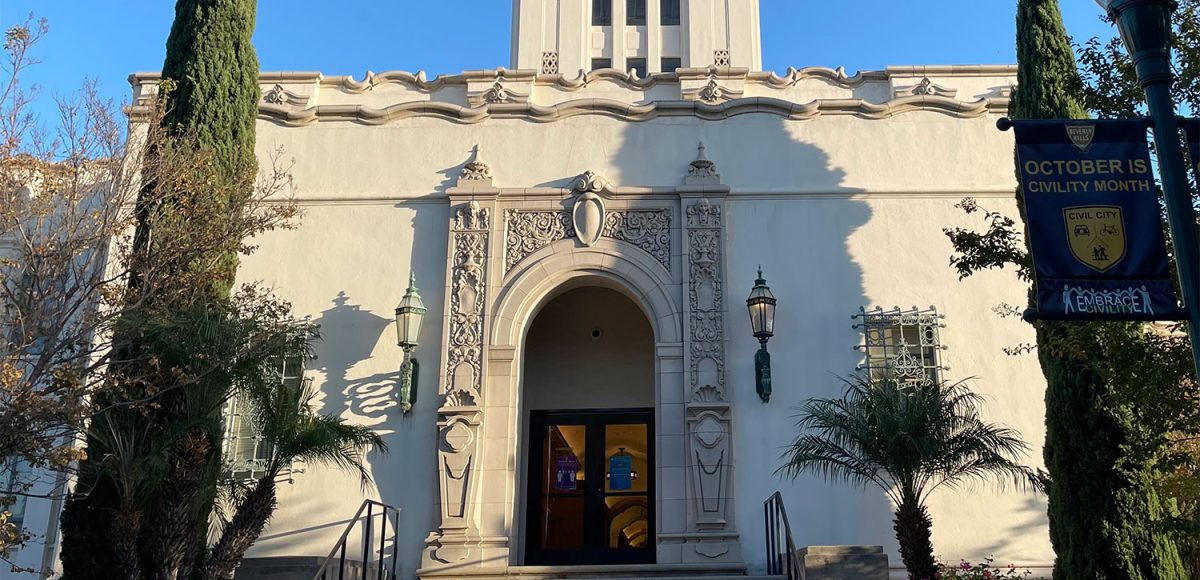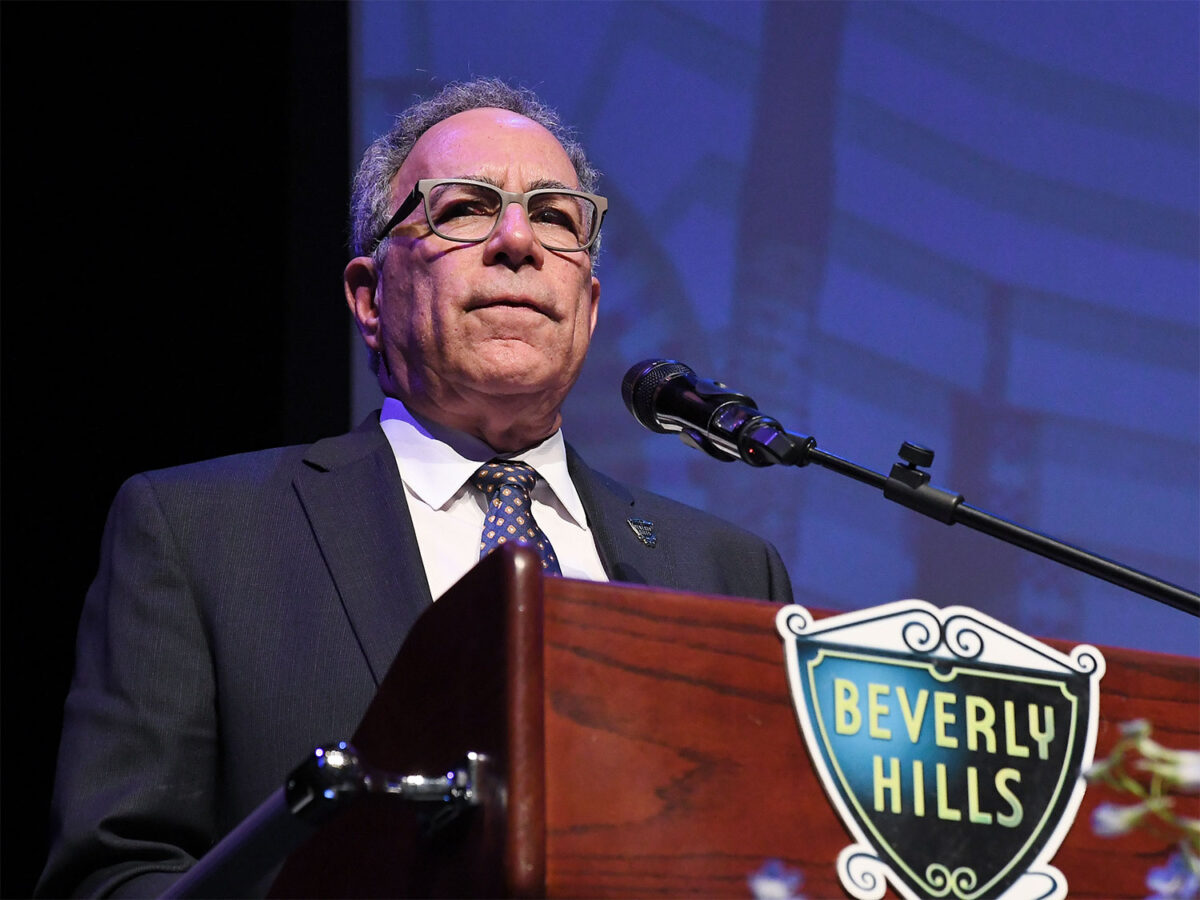At its May 16 regular meeting, the Beverly Hills City Council approved additional consulting services funds for the police department’s technology-based public safety initiative and addressed concern over fractional ownership of residential and commercial properties, among other topics.
During the meeting, the five-member council unanimously approved an amendment to the city’s agreement with consultant Julius Guay, Ph.D. A former LAPD detective lieutenant, Guay was retained by the Beverly Hills Police Department (BHPD) in December 2022 to provide project management and consulting services for the department’s public safety technology initiative, the Real Time Watch Center. The approved amendment authorizes a change in the purchase order for Guay’s continued services for an additional $70,000.
The police department’s Real Time Watch Center places BHPD technology, including drones, automatic license plate readers and CCTV cameras, under one roof.
Additionally, the council heard a first reading of an ordinance establishing prohibitions on fractional ownership of residential and commercial property that correlates to an agreement to use or occupy the property for a period of less than one year. In the case of residential properties, fractional ownership schemes involve multiple parties purchasing a single-family home and taking turns living in it during the year for various lengths of time based on ownership percentage. According to previous reporting by the Courier, the practice of fractional ownership can lead to people using properties as short-term rentals, leading to a greater probability of noise, loss of privacy and the potential decline in property value.
Newport Beach is among other cities that have implemented regulations on fractional ownership of single-family homes—regulating them as if they are timeshares.
Fractional ownership refers to shared ownership of a property. The ordinance is attempting to prohibit fractional ownership schemes leading to short-term use of the property for vacation, or similar, purposes. It’s not intended to limit all fractional ownership schemes.
The city’s senior planner, Chloe Chen, explained the council’s interim urgency ordinance, adopted in July 2021, expires this July. The Planning Commission had reviewed the draft language of the permanent ordinance on Feb. 9 and March 9 and recommended the ordinance for council approval.
The ordinance under consideration by the council would permanently adopt existing regulations into the city code. Before it can be adopted, it will need to go for a second reading at the next council meeting. It will become effective 31 days after its adoption.
Asked if there have been any instances of fractional ownership in Beverly Hills, city leaders said they were not aware of any. The objective of the ordinance was proactively addressing the issue before it occurred, they said.
Councilmember John Mirisch supported the ordinance but urged the city to investigate related housing ownership issues, including corporations buying up single-family homes to rent them out, thereby preventing families from becoming homeowners. Mirisch described the effort as the financialization of housing, “with Wall Street becoming the landlord.”
“People are concerned that Wall Street, private equity, global capital are increasingly buying up single-family neighborhoods, making it almost impossible for first-time homeowners or other people to purchase homes to actually live in,” Mirisch said. “That’s a separate issue and it’s something I would like for us to look at.”
Vice Mayor Lester Friedman echoed Mirisch’s suggestion that the city continue examining these issues.
The council also adopted a resolution amending the comprehensive schedule of taxes, fees and charges for the upcoming fiscal year.
The latest council meeting began with Mayor Dr. Julian Gold leading a moment of silence for community member Brenda Rubins, who died on May 5 at the age of 72.
Afterwards, the council honored Beverly Hills-based charity Tower Cancer Research Foundation. Those in attendance for the ceremony included Tower Cancer Research Foundation Executive Director Steve Abramson and Deputy Director Kelli Sargent.
Additionally, city leaders recognized National Public Works Week, shining a light on Shana Epstein, director of public works.
“You are the heart and soul of our community,” Councilmember Lili Bosse told Epstein. “Not only are we grateful but this entire community thanks you.”
Epstein, for her part, took the opportunity to publicize Public Works Day, taking place May 21 at the Farmers’ Market, from 9 a.m.-noon.
As part of a consensus item, Epstein delivered a presentation about the city’s water conservation plan. While there was some back-and-forth between Epstein and Councilmember Sharona Nazarian about restrictions over residents watering their lawns or trees between 9 a.m.-6 p.m., ultimately the five-member council said they were supportive of the city’s water plan.
“I was the ‘drought mayor,’” Gold said of serving as mayor in 2015. “I talked about drought for a year. That was a very dry year. So, I think this is great. I think people have gotten into the routine. If it works, why fix it?”
The Council’s next meeting is scheduled for June 6.







